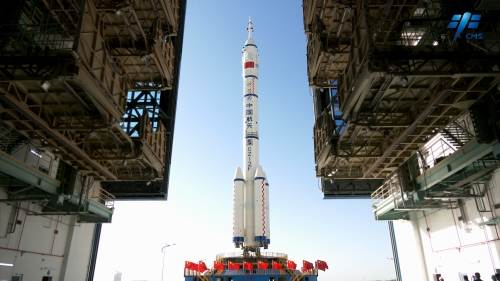China to send first civilian astronaut into orbit

China will launch the Shenzhou-16 manned spacecraft, the first time with a civilian astronaut on board. Beijing, which plans to land astronauts on the moon by 2030, has invested billions of dollars in its military-led space program
For the first time, China sends a civilian astronaut into orbit.
When it will be 3:31 in Italy on Tuesday 30 May, the Chinese space mission Shenzhou-16 will leave for the Tiangong orbiting station, now fully operational, as part of a crew rotation with the previous Shenzhou-15 mission. The China Manned Space Agency announced it on Monday.
Among the three astronauts who will sit aboard the Long March 3F rocket-powered space shuttle, Beijing has included a civilian astronaut for the first time, China Manned Space Agency spokesman Lin Xiqiang said. he is a professor at the Beijing University of Aeronautics and Astronautics”.
China, which plans to land astronauts on the moon by 2030, has invested billions of dollars in its military-led space program, trying to catch up with the United States and Russia after years of belatedly meeting their milestones.
So far, Beijing has therefore deployed only the soldiers of the People's Liberation Army, its armed forces, as taikonauts.
Gui Haichao said he has long dreamed of moving his "beloved research work" into space, SMCP reports. She will join Major General Jing Haipeng – who will be on her fourth mission – with aerospace engineer Zhu Yangzhu rounding out the crew.
BEIJING SPEEDS UP WITH ITS SPACE PROGRAM
Beijing is thus accelerating to carry out its ambitious space program, with the hope of sending humans to the Moon and becoming a major space power by 2030. In 2013, China made its first moon landing and in 2020 the Chang'e- 5 unmanned aerial vehicle, named after the mythical Chinese goddess of the moon, has brought China's first lunar soil samples back to Earth. Meanwhile, in April 2021, Beijing began construction of the three-module Tiangong (Heavenly Palace) space station with the launch of the Tianhe module, the main astronaut accommodation, currently fully operational.
In July and November 2022, Beijing launched the remaining two laboratory modules, Wentian and Mengtian , completing the space station.
Tiangong is expected to remain in low Earth orbit between 400 and 450 kilometers above the planet for at least 10 years, fulfilling the ambition of maintaining a long-term human presence in space. It will be manned at all times by rotating crews of three astronauts, who will conduct science experiments and help test new technologies.
THE SPACE SIGHTS OF XI JINPING
The station is one of the flagships of Beijing's ambitious space program.
Under President Xi Jinping, Asia's largest economy has stepped up efforts to match the United States as the dominant power in space.
In 2021 Russia and China signed a memorandum for the construction of an international lunar research station. According to Roscosmos — the Russian space agency — the lunar station will be designed as “a complex of experimental research facilities created on the lunar surface and/or orbit”. The facility will be available for use by other interested countries and international partners.
As US site SpaceNews pointed out, the announcement of the Sino-Russian memorandum followed Russia's (and later China's) decision not to join eight nations, including the United States, in signing the Artemis Accords in 2020. The Accords are a set of principles and rules for those who want to participate in the NASA-led Artemis lunar exploration program.
WILL CHINA OPEN COOPERATION FOR ITS SPACE STATION?
Back to Tiangong, China does not plan to use its space station for global cooperation on the scale of the International Space Station. However Beijing has said it is open to foreign cooperation. Not only that, China may even open up Tiangong to tourists in the future, according to statements released by Chinese officials. It is not yet clear how extensive such cooperation will be.
This is a machine translation from Italian language of a post published on Start Magazine at the URL https://www.startmag.it/innovazione/la-cina-inviera-una-prima-astronauta-civile-in-orbita/ on Mon, 29 May 2023 16:06:49 +0000.
